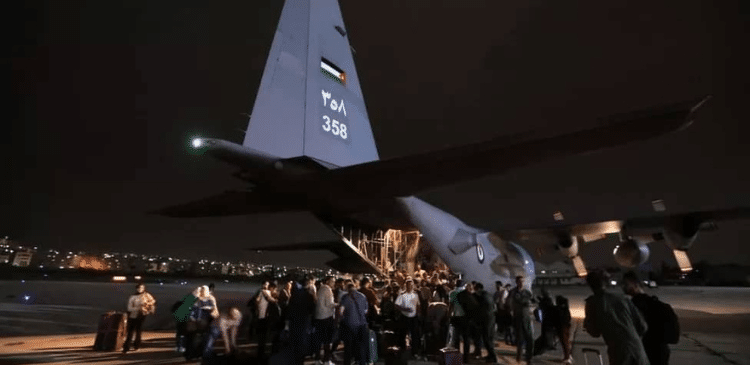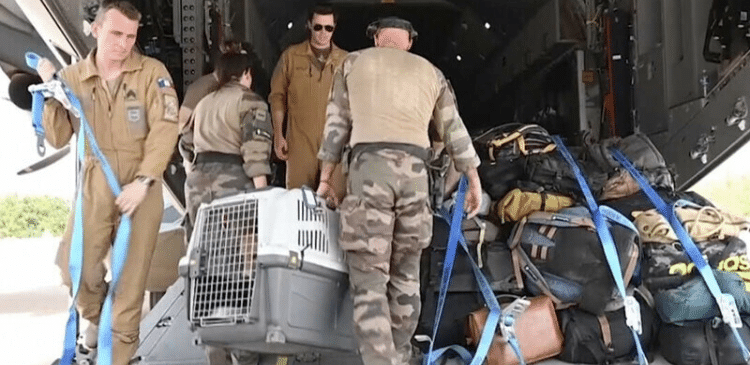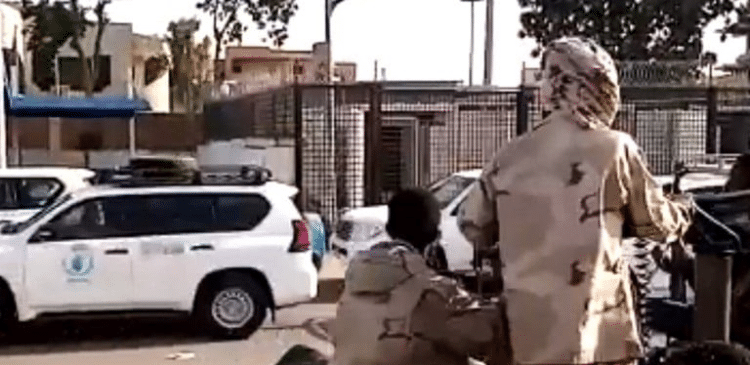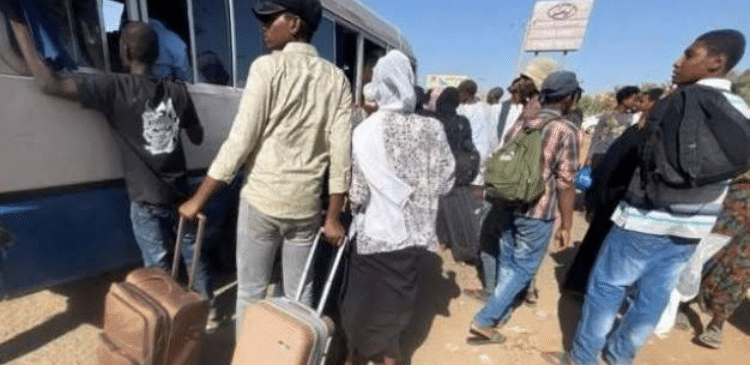A growing list of countries has evacuated their diplomats and citizens from Sudan’s capital Khartoum as fierce fighting continues.
United Kingdom, France, Germany, Italy, and Spain are among other nations that also carried out evacuations overnight.

French President Emmanuel Macron confirmed that a plane had arrived in Djibouti carrying French citizens and others on Sunday.
A handful of Dutch citizens left Khartoum on the French plane, while another with people from the Netherlands on board left early on Monday morning.
Germany’s army said the first of three planes had left Sudan, bound for Jordan, with 101 people on board.
Italy and Spain have evacuated their citizens – the Spanish mission included citizens from Argentina, Colombia, Ireland, Portugal, Poland, Mexico and Venezuela
Canada’s Prime Minister Justin Trudeau said his government had evacuated its diplomatic staff.
Other countries successfully evacuated their citizens on Saturday. More than 150 people, mostly citizens of Gulf countries, as well as Egypt, Pakistan, and Canada, were evacuated by sea to the Saudi Arabian port of Jeddah.
For now, the US embassy in Khartoum is closed, and a tweet on its official website says it is not safe enough for the government to evacuate private US citizens.
The UK government managed to airlift British diplomats and their families out of the country in what was described as a “complex and rapid” operation. Foreign Minister James Cleverly said options to evacuate the remaining British nationals in Sudan were “severely limited.”.

Meanwhile, the Nigerian government has warned Nigerian students, awaiting evacuation in Sudan to stay calm, be indoors, and disregard information about the process of evacuation that is being circulated , on the Internet
A circular by the Nigerian embassy in Sudan issued on Sunday noted that the Federal Government is working towards getting approval for evacuation.
It warned the students to get clearance and assurance from the Sudanese authorities before going to the border areas.
There have been desperate calls for help from many foreign students – from several Africa countries, Asia, and the Middle East – who are also stuck in Khartoum, a city of about six million people.
There are reports that internet connectivity has almost totally collapsed in Sudan, which could seriously hinder the coordination of help for those trapped in Khartoum and other cities.
The near-constant shooting and bombing in Khartoum and elsewhere has cut electricity and safe access to food and water for most of the population.

Several ceasefires that had seemingly been agreed by both sides were ignored, including a three-day pause to mark the Muslim holiday of Eid el-Fitr which started on Friday.
On Sunday, the US announced that a disaster response team would be sent to the area to “coordinate the humanitarian response for those in need both within and outside of Sudan.”
An official of the US Agency for International Development (USAID), Samantha Power, said the team would work from Kenya at first and prioritise getting “life-saving humanitarian assistance to those who need it most.”
The World Health Organization says the war has claimed more than 400 lives and thousands Inured. But the death toll is believed to be much higher as people are struggling to get healthcare, as most of the city’s hospitals have been forced to close by the fighting.
Along with Khartoum, the western region of Darfur, where the RSF first emerged, has also been badly affected by the fighting.
Editor Paul Akhagbemhe








